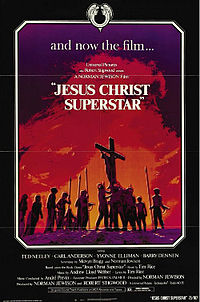
 |
Freethought & Rationalism ArchiveThe archives are read only. |
|
|
#41 | |
|
Veteran Member
Join Date: Jun 2006
Location: The Netherlands
Posts: 3,397
|
Quote:
|
|
|
|
|
|
#42 | ||
|
Veteran Member
Join Date: Jun 2006
Location: The Netherlands
Posts: 3,397
|
Quote:
|
||
|
|
|
|
#43 | |||
|
Contributor
Join Date: Sep 2002
Location: MT
Posts: 10,656
|
Quote:
Quote:
|
|||
|
|
|
|
#44 | ||
|
Veteran Member
Join Date: Jul 2004
Location: Dancing
Posts: 9,940
|
Quote:
Or it could be allegory. Which is what I think it is - an allegorical attack on the "historical" witnesses; which shares a similar outlook with Markion. I don't think he got that idea from out of thin air. Quote:
Also, these parables are similar to those found in Thomas (vss 9, 20, 21, 33) and were probably part of the "logia" (sayings) that Papias talks about. Which is probably Q. Therefore it's unlikely that it was a historical speech, but sayings inserted into the text. And then, Mark 7 is an anachronism; the author mistakenly believing that "all the Jews" washed their hands before a meal prior to 70 CE. |
||
|
|
|
|
#45 | |||
|
Contributor
Join Date: Sep 2002
Location: MT
Posts: 10,656
|
Quote:
|
|||
|
|
|
|
#46 | ||
|
Veteran Member
Join Date: Jan 2008
Location: Latin America
Posts: 4,066
|
Quote:
 It became so popular that the audience memorized the lines and acted out the scenes eventually believing that they were the characters. 
|
||
|
|
|
|
#47 | |
|
Regular Member
Join Date: Apr 2008
Location: Earth
Posts: 320
|
Quote:
You just made an assertion they "they" do so - do you have any evidence or documentation of this, because I am very skeptical. Indeed, the very topic of this thread touches on the Jesus Project, which was originally proposed as the first high-level rigorous cooperative investigation into the historicity of JC. This program was subverted from within - there was not a single academic who was interested or willing to be part of such an endeavor, and the original research focus which was one of, if not the major raisons d'etre for the project, was scrapped. And this is the so-called liberal wing of biblical scholarship! So, when you blithely assert that there are many academics who look into this issue, I hope you can see why such a statement demands documentation. :constern01: |
|
|
|
|
|
#48 | ||
|
Contributor
Join Date: Jun 2000
Location: Los Angeles area
Posts: 40,549
|
OK, now we're getting silly.
PhilosopherJay (Jay Raskin) wrote a book tracing the hypothetical evolution of the Christian myth from a Greco-Roman play, The Evolution of Christs and Christianities. (or via: amazon.co.uk) self published on XLibris. You can check it out. Unfortunately, there are some formatting problems. I don't know if Jay intends to revise or rework the book. Mark as written does not work as a play, linguistically, but might very well be a story that evolved from a plot that was originally a play. And when AAbe says Quote:
But historicists have actually done much of this work, if you read current NT research. Quote:
|
||
|
|
|
|
#49 | ||
|
Contributor
Join Date: Sep 2002
Location: MT
Posts: 10,656
|
Quote:
|
||
|
|
|
|
#50 | |||
|
Contributor
Join Date: Sep 2002
Location: MT
Posts: 10,656
|
Quote:
|
|||
|
|
| Thread Tools | Search this Thread |
|